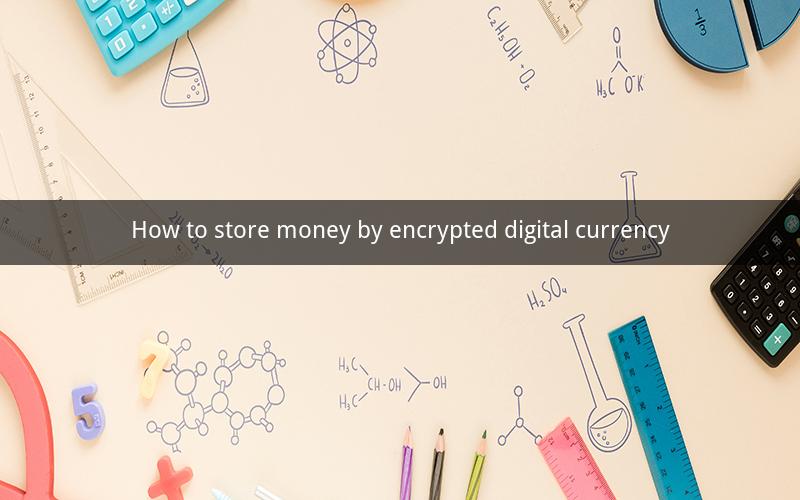
How to Store Money by Encrypted Digital Currency
Table of Contents
1. Understanding Encrypted Digital Currency
2. The Importance of Secure Storage
3. Choosing the Right Wallet
4. Cold Storage vs. Hot Storage
5. Best Practices for Cold Storage
6. Best Practices for Hot Storage
7. Multi-Factor Authentication and Security Measures
8. Regular Backups and Recovery Procedures
9. Keeping Up with Security Updates
10. The Role of Blockchain Technology in Secure Storage
1. Understanding Encrypted Digital Currency
Encrypted digital currency refers to digital assets that use cryptographic techniques to secure transactions and control the creation of new units. These currencies operate independently of a central authority, such as a government or financial institution. Bitcoin, Ethereum, and Litecoin are examples of well-known encrypted digital currencies.
2. The Importance of Secure Storage
As with any valuable asset, the secure storage of encrypted digital currency is crucial. The loss of digital currency can occur due to theft, loss of private keys, or technical failures. Ensuring that your digital currency is stored securely can protect against these risks.
3. Choosing the Right Wallet
A wallet is a software or hardware device that stores the private and public keys necessary to manage your digital currency. There are two main types of wallets: hot wallets and cold wallets.
4. Cold Storage vs. Hot Storage
Cold storage involves storing digital currency offline, which makes it less susceptible to online threats. Hot storage, on the other hand, involves storing digital currency on a computer or mobile device connected to the internet. Cold storage is generally considered more secure, but it can be less convenient.
5. Best Practices for Cold Storage
When using cold storage, follow these best practices:
- Use a hardware wallet for maximum security.
- Store multiple copies of your wallet's backup in different physical locations.
- Keep your private keys secure and do not share them with anyone.
- Regularly update your hardware wallet's firmware.
6. Best Practices for Hot Storage
When using hot storage, consider the following best practices:
- Use a reputable software wallet.
- Keep your software wallet updated to the latest version.
- Enable two-factor authentication to add an extra layer of security.
- Be cautious when downloading wallets from the internet to avoid malware.
7. Multi-Factor Authentication and Security Measures
Implementing multi-factor authentication (MFA) adds an additional layer of security to your digital currency storage. This involves using multiple forms of verification, such as a password, a PIN, and a physical token or biometric data.
8. Regular Backups and Recovery Procedures
Regularly backup your digital currency to prevent data loss. Create a recovery phrase or seed for your wallet, and store it in a safe and secure location. Familiarize yourself with the recovery process in case you need to restore your digital currency to a new wallet.
9. Keeping Up with Security Updates
Stay informed about the latest security updates and threats related to encrypted digital currency. Regularly update your software and hardware wallets to ensure you are protected against new vulnerabilities.
10. The Role of Blockchain Technology in Secure Storage
Blockchain technology underpins the security of encrypted digital currency. It ensures that transactions are transparent, immutable, and secure. Understanding the blockchain's workings can help you better appreciate the security measures in place for your digital currency.
FAQs
Q1: What is a private key, and why is it important?
A1: A private key is a unique, secret code that allows you to access and control your digital currency. It is crucial because anyone with your private key can control your digital currency, so it must be kept secure.
Q2: Can I use the same private key for multiple wallets?
A2: No, each wallet should have a unique private key. Using the same private key across multiple wallets increases the risk of losing your digital currency.
Q3: How can I tell if a digital currency wallet is secure?
A3: A secure digital currency wallet will offer features such as encryption, multi-factor authentication, and regular security updates. It should be developed by a reputable company and have a strong track record of security.
Q4: What should I do if I lose my digital currency?
A4: If you lose your digital currency due to a lost private key or other factors, it is generally irrecoverable. To prevent this, ensure you have secure backups and recovery procedures in place.
Q5: Can I store my digital currency on an exchange?
A5: While exchanges offer convenience, they are not as secure as cold storage solutions. It is generally recommended to use cold storage for long-term holdings and exchanges for short-term trading.
Q6: Are there any legal implications of storing digital currency?
A6: The legal implications of storing digital currency vary by country and jurisdiction. It is essential to research and comply with the laws and regulations in your specific location.
Q7: How can I protect my digital currency from phishing attacks?
A7: Be cautious of unsolicited emails, messages, or calls asking for your private key or other sensitive information. Always verify the identity of the sender and never share your private key.
Q8: What is a hardware wallet, and how does it work?
A8: A hardware wallet is a physical device that stores your private keys offline, making it highly secure against online threats. It works by generating and storing private keys on the device and signing transactions with the private key.
Q9: Can I use a regular computer for cold storage?
A9: While it is possible to use a regular computer for cold storage, it is not as secure as using a hardware wallet or other dedicated cold storage solutions. The risk of malware or hardware failure is higher with a regular computer.
Q10: How often should I check my digital currency balance?
A10: It is a good practice to regularly check your digital currency balance, especially if you are actively trading or involved in transactions. This helps you stay informed about your holdings and detect any unauthorized activity.